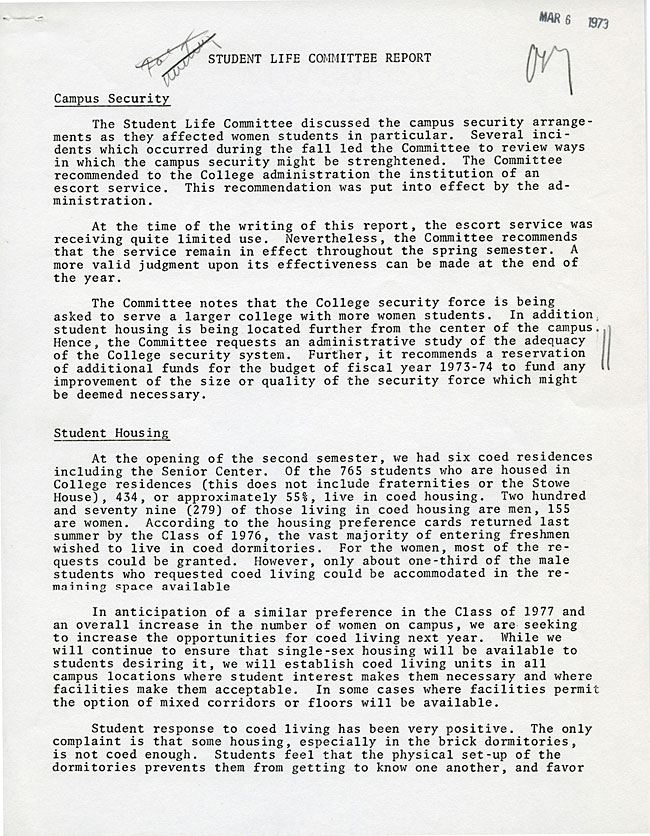In the “Security” section of a 1973 Student Life Committee Report (Document AK, 28), the issue of campus security “as it affected women students in particular” came to the fore. Due to a number of reported “incidents,” and the fact that, with the increase in the size of the student body size, student housing was expanding further and further from the center of campus, an “escort service” – akin to today’s shuttle service – was implemented. Overall, the report recommended an increase in the total security presence on campus.
Interestingly, the need for this increase in security presence was described as a direct result of the addition of women to Bowdoin. The implication is either (or both) that women require more protection than men, and/or that men are more likely to commit crimes against women than against each other. Another interesting component is the mention of “incidents.” Though it is unclear whether these were particularly violent or sexual in nature, the type of “incidents” that might prompt a woman to seek an escort service at night were likely assault-oriented.
At the time, Bowdoin was not alone in beginning to recognize the need for sexual assault protection and support for women students. In the 1970s, feminists brought issues of sexual harassment and sexual assault to the forefront, on college campuses as well as in the larger society. In 2011, sexual assault awareness and prevention are central issues at Bowdoin, and the community has made a remarkable effort to keep this campus safe. Every year, “Consent Is Sexy Week” teaches Bowdoin students how to recognize and avoid sexual assault through various programs and events. Bowdoin’s Alliance for Sexual Assault Prevention (ASAP) is an umbrella title for the collaboration of various groups all devoted in whole or in part to these issues, including Bowdoin Men Against Sexual Violence (BMASV), VSpace, Vday, Peer Health, Safe Space, and the Bowdoin Queer Straight Alliance (BQSA).
